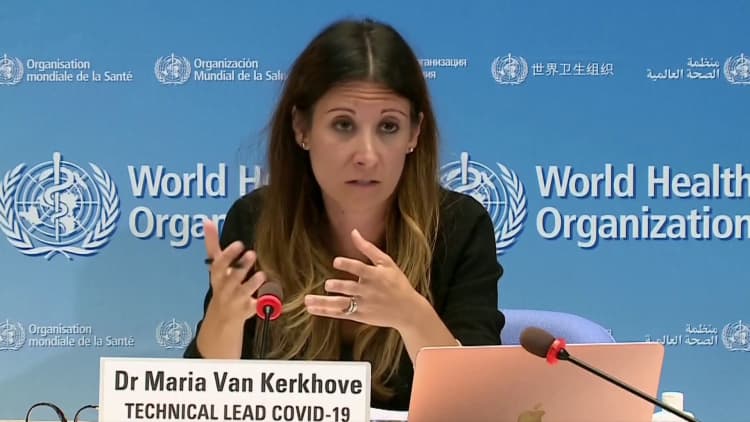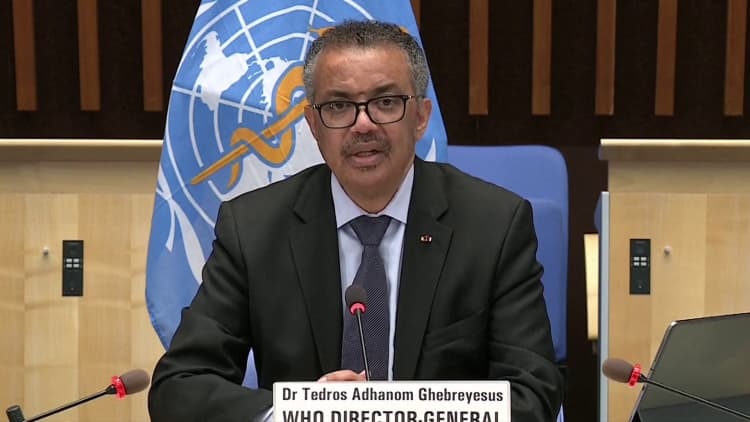New Zealand is set to announce if it will extend new restrictions, following a resurgence of cases in Auckland — after more than 100 days of being virus-free.
The United States reported more than 1,500 new deaths caused by Covid-19 on Wednesday, marking the deadliest day for the country since the end of May. The surge in deaths comes as daily new cases reported across the country appear to decline, but epidemiologists caution that nationwide testing has fallen, too, raising questions about whether the count of new cases reflects the state of the outbreak. The debate around in-person learning continues as students across the country return to school in some form.
Here are some of the major developments on Thursday:
- Weekly jobless claims come in below 1 million for the first time since March
- No evidence coronavirus transmitted through food: WHO
- UN warns pandemic could create new conflicts
- Critics of Sweden's coronavirus strategy call for more restrictions
- American Airlines prepares to cut service to small cities
The following data was compiled by Johns Hopkins University:
- Global cases: More than 20.9 million
- Global deaths: At least 760,022
- U.S. cases: More than 5.2 million
- U.S. deaths: At least 167,253



